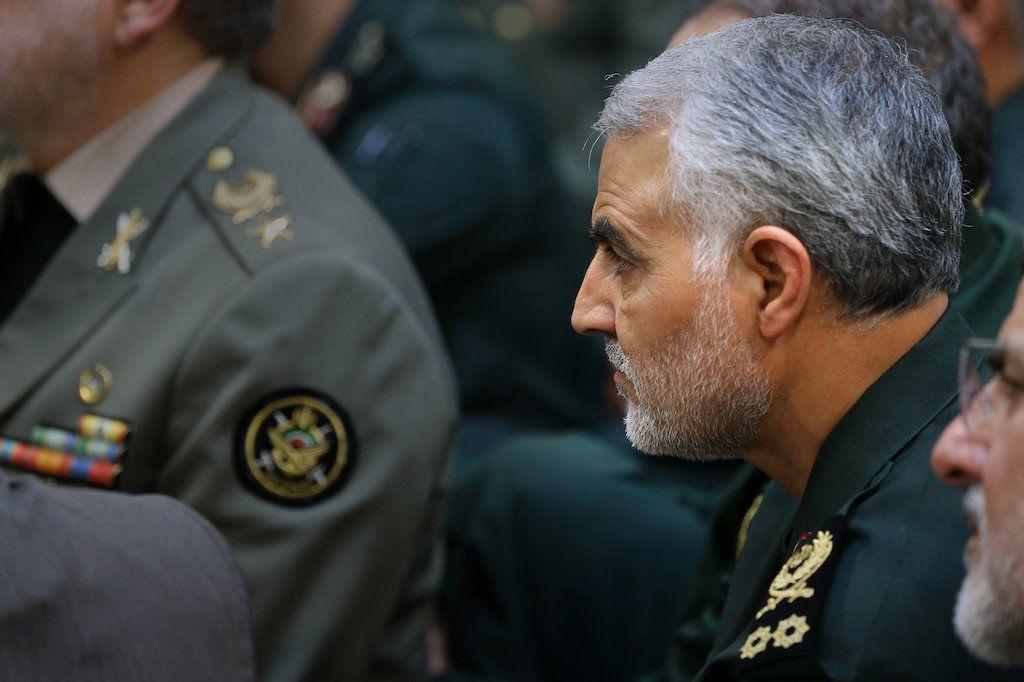On Jan. 3, the United States government announced President Donald Trump had ordered a drone strike near Baghdad International Airport killing nine people, including Iranian Major General Qasem Soleimani of the Islamic Revolutionary Guard Corps (IRGC). Initially, Trump justified the killing as necessary to disrupt an “imminent plot” against American diplomats and military personnel in the region. The problem is in the ensuing days, that explanation became a moving target amid shifting rationales about what prompted this provocative action. As more information has become public, it seems increasingly likely the U.S. deliberately and flagrantly assassinated two foreign government officials.
Obviously, this is not the first time the U.S. has used lethal force against foreign government officials. For instance, the American military specifically targeted and killed Admiral Isoroku Yamamoto of the Imperial Japanese Navy during WWII — a clearly lawful action during a congressionally authorized war. But the history of American government actions during the Cold War is checkered by both successful and unsuccessful attempts to assassinate legitimate political figures, typically at the hands of the CIA.
The assassination of Soleimani, a government official from a country with whom the U.S. is not legally at war with, risks bringing back an immoral practice from an unfortunate and regrettable period of American history. (Note: Deputy chairman of Iraq’s Popular Mobilization Forces (PMF), Abu Mahdi al-Muhandis was also killed in the airstrike.)
Without U.N. Security Council authorization, international law only allows the use of force against other states for defensive purposes in response to an “imminent threat.” But if there may have been an actual threat, in this case, the official rationale is classified. Moreover, the Trump administration has refused to share with Congress the presumptive nature of the threat or the full extent of whatever intelligence they used to reach that conclusion.
But in the days that followed and through public reporting and public statements by government officials, it appears the killing of Soleimani was a premeditated action that had long been discussed by the administration. According to NBC News and The Hill, Trump had been pushing to kill Soleimani since 2017. NBC News further reported that according to five senior current and former Trump administration officials, Trump had authorized the death of Soleimani in June 2019 on the condition he had been involved in the killing of any American, a position that had been pushed by Secretary of State Mike Pompeo. The death of an Iraqi-American contractor in a rocket attack in December 2019 provided them with an excuse to execute the long-held plan. Take the administration’s reluctance to offer any convincing evidence of the supposed threat together with inconsistent statements from Trump and his deputies after the fact, and it becomes increasingly apparent that what unfolded was anything but a credible, self-defensive justification. Retaliation is not self-defense.
The laws and norms that regulate international conduct are designed to restrain the actions of all nations, not just a few. In a world where the U.S. often coerces other nations to follow these same laws and norms, it falls on the U.S. to judge itself by the same standards — and that means for the U.S. Congress and the public to rein in such dubious actions and hold the relevant decision-makers accountable.
Aside from the immediate deaths, the only other consequence of the drone strike has been an anti-American backlash in Iraq. Before the assassination of Soleimani, popular sentiment in Iraq had been building against Iranian influence in the country. That anger is now being directed at the American presence. Iraqi Prime Minister Adel Abdul-Mahdi condemned the killing as a violation of the terms underpinning the U.S. troop presence in the country, and the Iraqi parliament has already called for a withdrawal of U.S. troops. These developments can only serve to make the situation in Iraq more perilous for U.S. citizens and personnel.
The killing of foreign officials outside of legitimate warfare is a rightly condemned practice in the global arena. It runs against established principles of international law, violates the sovereignty of nations, breeds long-lasting fear and mistrust between countries, and, as demonstrated in the Iraqi case, often works counter to the supposed goals. The U.S. should not be in the business of assassinations, and the killing of Soleimani is no different.
What’s wrong with this picture: The likely assassination of Soleimani
January 16, 2020
Photo by Creative Commons
Major General Qasem Soleimani was killed with nine others in a drone strike on Jan. 3.
0
Donate to The Battalion
$2065
$5000
Contributed
Our Goal
Your donation will support the student journalists of Texas A&M University - College Station. Your contribution will allow us to purchase equipment and cover our annual website hosting costs, in addition to paying freelance staffers for their work, travel costs for coverage and more!










